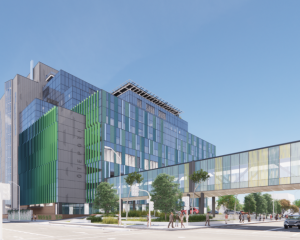A plan to make a sizeable reduction to Southern District Health Board's deficit has sparked concern it could be to the detriment of patients.

Labour health spokeswoman Annette King said the $22 million forecast deficit - $12 million less than the $34 million deficit posted in 2015-16 - was concerning because of recent strains at SDHB.
''Examples include patients waiting too long for orthopaedic operations, [and patients] going blind waiting for follow-up eye appointments.
''Reducing the deficit is laudable if it's not at the expense of patients' care. To date it's not possible to have confidence Southern patients are getting the care they need when they need it,'' Mrs King said.
At an SDHB meeting yesterday, Natalie Wilson, of Dunedin, speaking to the commissioner team during the public forum, asked if the deficit reduction would adversely affect services.
Ms Wilson said the Office of the Auditor-general had recently expressed concern that New Zealand DHBs were too focused on short-term financial results.
In response, commissioner Kathy Grant said she was appointed last year in order to take a long-term view of the board's challenges.
After the meeting, interim chief executive Chris Fleming and Mrs Grant told the Otago Daily Times services would not be adversely affected by the deficit reduction.
Mr Fleming said the board was able to remedy problems in ophthalmology, which involves adding extra resources to ensure patients receive timely follow-up appointments, and still reduce costs overall.
The board was ahead of its financial target in the first four months of 2016-17, he said.
The annual plan, released this week, shows the biggest spending cut is infrastructure and non-clinical supplies. Spending on that will reduce by $7.9 million to a total of $71.1 million this year. It is not clear what that reduction will mean, or exactly where the saving will be found.
''Southern DHB provider arm has commenced a service realignment project to identify areas that have contributed to the increase in the deficit over recent times.
''Increasing costs associated with ageing facilities, national collective agreements and aged residential care require the DHB to find substantial cost savings and efficiencies.
''The budget for 2016-17 has been set and reflects what is believed to be an achievable result,'' the annual plan says.
Comments
I wonder what would happen to the health budget if we required every single MP and every manager at the hospital to relinquish their private health insurance. Perhaps then the hospital would get properly cleaned once in a while.












